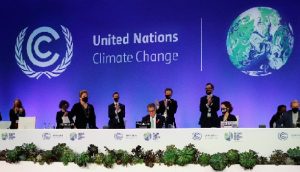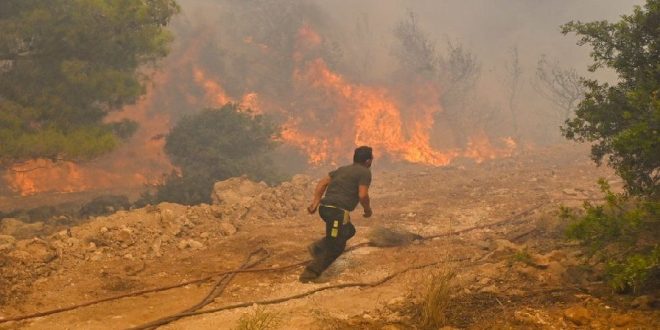11-09-2023
UNITED NATIONS: Tackling climate change needs a rapid transformation of the way our world works, travels, eats and uses energy, according to an important UN review.
 This is the first “global stock take” to examine the efforts of countries to reduce planet-warming emissions since the Paris agreement was signed in 2015.
This is the first “global stock take” to examine the efforts of countries to reduce planet-warming emissions since the Paris agreement was signed in 2015.
While progress has been made, efforts now need to be massively scaled up.
The report calls for “radical decarburization” with a fast phase out of fossil fuels without carbon capture.
Burning fossil fuels like oil, gas and coal to generate electricity emits carbon dioxide, which is the main driver of climate change. Carbon capture in industrial processes and power stations stops most of the CO2 produced from being released, and either reuses it or stores it underground.
Renewable energy also needs significant expansion while deforestation needs to be halted and reversed by 2030.
The stock take report will be considered by political leaders and will be central to global climate talks in Dubai later this year.
Over the course of the past two years, the UN has set out to review the promises made by countries who signed the Paris agreement in 2015. At the meeting eight years ago, countries agreed to keep the amount of warming since the industrial revolution well below 2C and make efforts to keep it under 1.5C.
 The report examines their efforts to cut carbon, to adapt to climate change and how they have mobilized finance and technology to help poorer nations deal with the problem.
The report examines their efforts to cut carbon, to adapt to climate change and how they have mobilized finance and technology to help poorer nations deal with the problem.
No country is named and shamed in this report, which considers the collective approach to tackling the problem.
Much progress has been made, the document acknowledges, but the global rise in temperatures predicted for this century is still well above what was promised in Paris.
Keeping to those goals will now require a significant uptick in ambition according to the stock take, which calls for widespread “system transformation”.
This means that every aspect of our societies needs to change to rein in rising temperatures.
This includes the way we make energy, the way we travel, work and produce food. Experts say this type of change needs governments to take the initiative and make sure that their climate actions aren’t immediately nullified by other policies and investments. (Int’l Monitoring Desk)
 Pressmediaofindia
Pressmediaofindia




